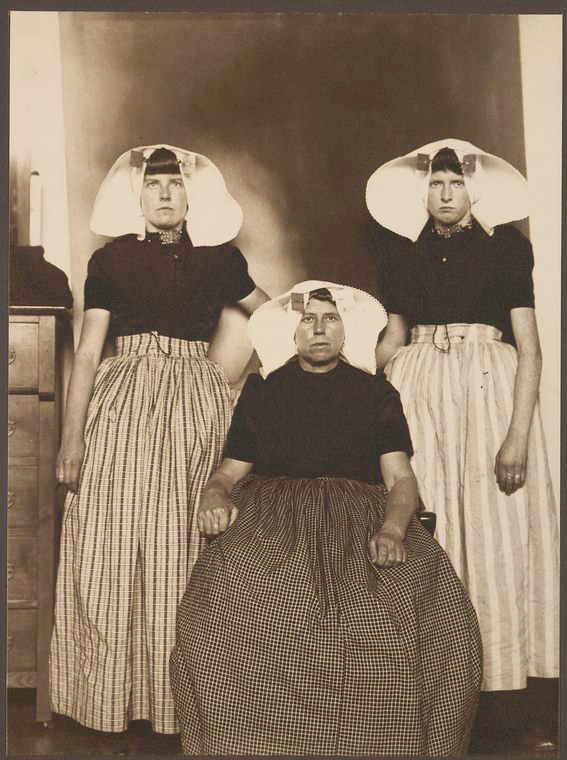
It’s hard to believe that it’s already been two months since I joined the Flickr Foundation as a Research Fellow. Now that I’m settled in at HQ, I’m ready to share what I’ve been working on.
My starting point for this fellowship was to explore the long-term implications of digital collections access. I wanted to spend some time on the idea of tending to an ‘end of life’ for a collection – whether that’s through intentional institutional policies like digital weeding, or catastrophic loss through climate change.
One of the first pieces I read was Dr. Temi Odumosu’s article The Crying Child: On Colonial Archives, Digitization, and Ethics of Care in the Cultural Commons, where she writes:
“…the opportunities for intervening both in back-end collections practices and web user experience, which insists on a more conscientious data flow around the commons, feels like something approximating practical ethics.”
The phrase conscientious data flow has become a generative force for my research so far—I might as well have it tattooed on my arm. It’s made me think about the whole lifecycle of a digital object: how a photo or other object is selected for digitization and public access, what happens to it when people view and interact with it, and what traces it leaves behind.
In focussing on the lifecycle of an object, my reading has coalesced around three main areas:
- Ethics of care throughout the life of a digital object
- Responsible data stewardship and radical transparency
- Climate impacts of unconstrained digital collections
Alongside these themes, I’m also getting more familiar with AI (no, really, what have I missed?), the decentralized web and the indieweb, Personal Knowledge Management systems, and generally how to be a good, care-full citizen of the Web.
Here are some highlights:
Ethics of care
Following on from Dr. Odumosu’s work, I delved into the brilliant work of The Shift Collective who work directly with small community-based archives and memory workers to explore the cultural, financial and technological systems in which they operate. Their extensive research demonstrates how those systems must change to enable autonomy, equity and sustainability for the communities they serve.
I’ve also been digging into the CARE Principles for Indigenous Data Governance, principles that set out how, as researchers or institutions working with Indigenous or marginalized communities, we can put autonomy back into the hands of those whose data (or content, objects or cultural heritage) is in the public realm.
These principles are crucial grounding for the Flickr Foundation. We need to be aware of potential imbalances of power as a non-profit tech company that builds software for Flickr Commons and its preservation. To embody the CARE Principles in Flickr Foundation’s work means to design interventions that allow community control over their digital heritage and its preservation.
Responsible data stewardship
Flickr Foundation’s mission to keep Flickr photos visible for 100 years implies that we need new mechanics to move content around the web (whatever the web looks like in 20, 50, 75 years) and keep it somewhere where people can find it. What contextual information needs to travel with the Flickr photos to enable future generations to use them? And are we at that point even now, given that there are Flickr APIs that allow programmatic access to the Flickr corpus? What documentation is needed to support the ethical use of any slice of Flickr’s content?
My introduction to this topic was the hot-off-the-press Datasheets for Digital Cultural Heritage (October 2023) which proposes a standardized template for cultural institutions to collaboratively document their open data sets derived from the digitization process. I’ve been working my way back through the history of the datasheet as a method of transparency, looking at the work of Emily Bender, Timnit Gebru, Mahima Pushkarna and other significant researchers in academia and industry, and following it through to current uses by Hugging Face and the Smithsonian.
I’ve been working on mocking up a datasheet specifically for Flickr Commons. I’ll be ready to make this available for feedback from the Flickr Commons community in January 2024.
Climate impact of digital collections
Though perhaps not as directly connected to the work of the Flickr Foundation, I’m keen to find out what the GLAM sector is doing to understand and plan for the long-term preservation and short-term access to its digital collections in light of the climate crisis. My sense is that culture workers are in the early days of considering the carbon costs of digital activities. And while climate change is a systemic issue that must be addressed through global cooperation, government policy and regulation, every one of us will need to make changes in the future.
If every job is a climate job, what does that mean for people working in cultural heritage? Will energy considerations make their way into collection development and retention policies, for example?
And that’s not all
I’m fortunate to be based in the London office with 2/3 of the permanent team. Being part of Flickr Foundation HQ gives me a well-rounded picture of the breadth of its activities, and gives me a chance to work on software projects. I’ve chipped in on some user interface design ideation, helped to test Flickypedia before its launch, and started working up some design ideas for a Flickr to IIIF toy to help Flickr Commons members make their Flickr photos interoperable with alternative platforms.
If you’re interested in following along with what I’m reading, I’m keeping a list on my Pinboard.
And if there’s something you think is a must-read, send it my way!
Image credit: Bedbril / Glasses for reading in bed. Nationaal Archief / Flickr Commons.


